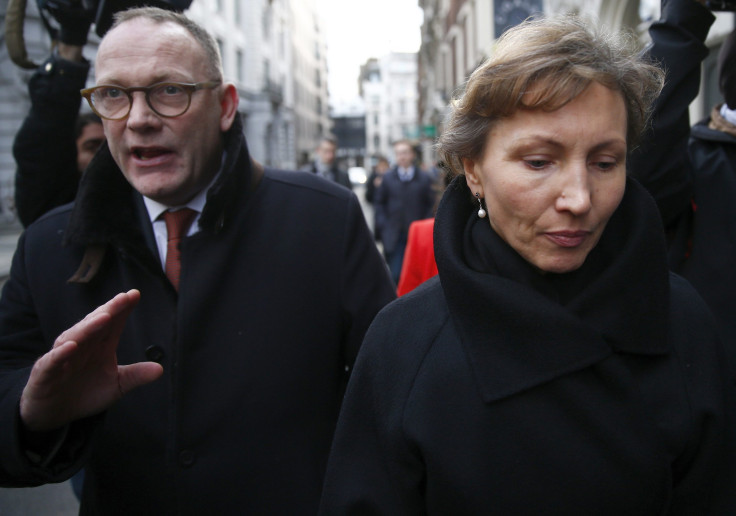Who Is Alexander Litvinenko? UK Launches Inquiry Into 2006 Poisoning Of Former KGB Agent

Alexander Litvinenko, the KGB agent-turned-defector and critic of Russian President Vladimir Putin, died Nov. 23, 2006, of acute radiation poisoning. British authorities accused two KGB agents Litvinenko met with just three weeks earlier of poisoning him by slipping a massive dose of polonium-210 into a cup of tea. On Tuesday, a little more than eight years later, the United Kingdom launched its official inquiry into Litvinenko's assassination, which he said on his deathbed was at the orders of Putin.
He started his intelligence career as a military conscript, but within six years he was working with the KGB. He became part of the Russian FSB, or Federal State Services, the successor to the KGB after the fall of the Soviet Union in 1991. Working as the head of a division within the FSB’s organized crime unit, Litvinenko witnessed what he called widespread corruption and collusion between organized crime and the Russian state, all the way up to Putin. In response, he and a handful of fellow FSB officers decided to go public, eventually being publicly disavowed by the Russian state. He defected and sought asylum in the U.K., where he started working for the U.K.'s MI5 and MI6 intelligence services, offering information on Russian organized crime, terrorism and government corruption.
His alleged murder was claimed to have been committed by Andrey Lugovoy and Dmitry Klovtun; the former is now a member of the Russian Parliament, or Duma. British detectives found trails of polonium-210 where Litvinenko, Lugovoy and Klovtun traveled in London and in the two latter cases, all the way through Germany and to Moscow. British authorities sought to extradite Logovoy and Klovtun once they were back in Russia, but the Russian government would not allow it under the Russian Constitution. Both deny any involvement.
The incident negatively affected U.K.-Russia ties, but the British government held off opening an official inquiry into Litvinenko’s death. Now, the 10-week inquiry will hear arguments from Litvinenko’s widow Marina’s lawyer that the Russian state was directly involved in Litvinenko’s death. Ben Emmerson, the family’s lawyer, forcefully came out accusing Putin of direct involvement. “If, in due course, you find that Kremlin officials ordered Litvinenko’s assassination, then we will invite you to go further and to conclude that an officially sanctioned murder of this kind cannot have been carried out on foreign territory, with all the political implications that that would have, without the personal knowledge and permission of Vladimir Putin,” he said in his opening statement to the inquiry, according to the Guardian.
Ex-Russian spy Alexander #Litvinenko ‘killed at third attempt’ http://t.co/6cSHosvEDR pic.twitter.com/tUiGeRU4as — euronews (@euronews) January 27, 2015
Emmerson argued that polonium-210 would have cost millions of dollars and no organized crime group would use such an expensive and sophisticated method of assassination. He also noted that polonium-210 is produced in only one factory in Russia owned by the federal atomic agency, Rosatom. This would have made the plan much more cost-effective. In addition, he claimed to have witness testimony of Lugovoy and Klovtun discussing the assassination and that they tried the assassination once before, two weeks earlier at the same restaurant. Neither Lugovoy nor Klovtun will attend the trial.
A summary of the first day of the inquiry can be found here, via the Guardian. There are a number of documentaries about Litvinenko’s death on YouTube, but this five-minute clip from a Dutch documentary about him sums up his claimed motivations and knowledge of Russian organized crime and corruption.
© Copyright IBTimes 2025. All rights reserved.






















